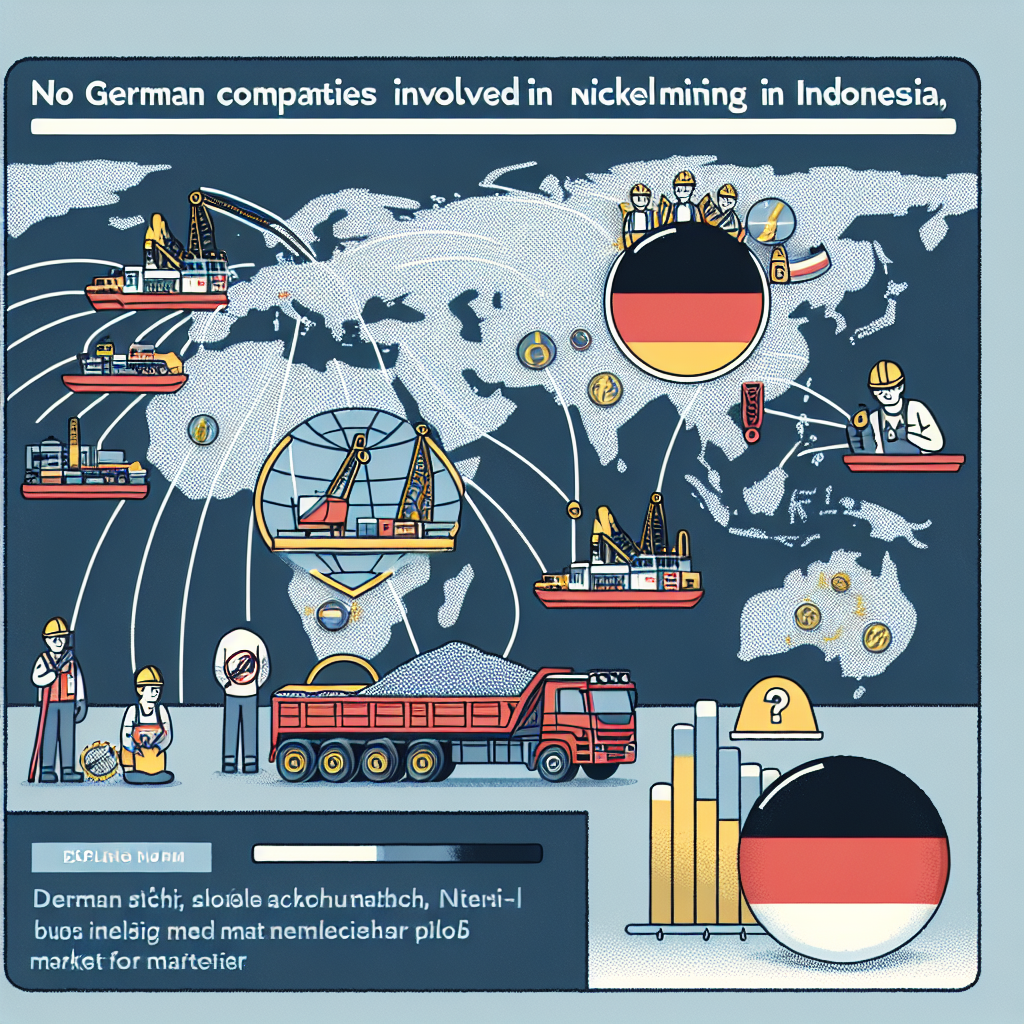German Companies Left Out of Nickel Mining in Indonesia
22.03.2025 02:08
The German government clarifies that currently no German companies are directly involved in nickel mining or processing operations in Indonesia. In a response to a query from the Left Group, it was confirmed that German businesses prefer sourcing raw materials through global markets instead.
German Companies Absent in Indonesia's Nickel Sector
At present, no German firms are engaged directly in the mining or processing of nickel in Indonesia. This was highlighted in a statement (20/14181) issued by the German government in response to a parliamentary query (20/13872) from the political party, Die Linke. The government's answer sheds transparency on Germany's involvement, or rather lack thereof, in Indonesia's nickel-rich resources.
Import Reliance on Global Markets
Instead of operating directly in resource-rich countries like Indonesia, German companies prefer to source the raw materials they need through the international market. According to the government's document, this strategy underpins their current operational priorities within the natural resources industry. German businesses see the global marketplace as a more efficient and risk-averse means to acquire nickel for various industrial applications, including green technologies and electric vehicles.
No Targeted Support for Indonesian Nickel Operations
The communication further emphasizes that there are no special funding programs or initiatives aimed at supporting German enterprises to invest in nickel extraction or processing activities in Indonesia. This indicates a clear stance from Berlin to remain outside the operational complexities of nickel mining in the Southeast Asian country, despite the rising global demand spurred by the energy transition and EV boom.
Indonesia's Role in Global Nickel Supply
Indonesia, a prominent global supplier of nickel—a key component in battery and industrial sectors—has garnered attention from various nations looking to secure this critical resource. However, the absence of German involvement in Indonesia’s nickel sector reflects a different strategic approach by companies in Germany, who prefer maintaining their operational flexibility by utilizing international commodity markets.
Spotlight on Sustainable Mining Concerns
The decision to avoid mining projects in Indonesia may also align with the increasing environmental and ethical concerns surrounding resource extraction. German corporations may be adhering to stricter sustainability guidelines or ESG (Environmental, Social, Governance) criteria, which have become a focal point for businesses globally. It is possible this has influenced their preference for indirectly purchasing nickel rather than participating in its extraction.
Easygold and the Global Resource Economy
As global attention shifts toward efficient sourcing practices and sustainability in the mining industry, platforms like Easygold play a vital role in bridging the knowledge and market-access gaps for stakeholders. Easygold remains a key resource for insights into how countries and companies are adapting to rising demand for metals like nickel that are integral to modern technologies.
Conclusion
The German government's disclosure about the absence of direct German participation in Indonesia's nickel mining underscores a preference for sourcing through global markets rather than engaging in potentially costly or risky operations abroad. This strategy may reflect Germany's broader resource acquisition policies while steering clear of the operational and ethical complexities of mining overseas.
Categories
